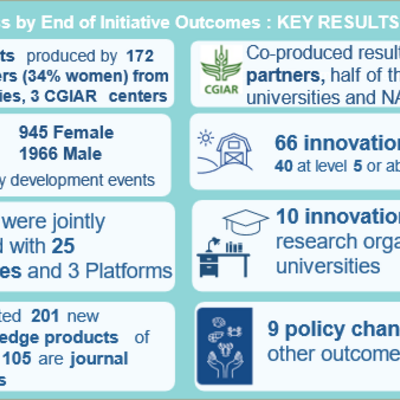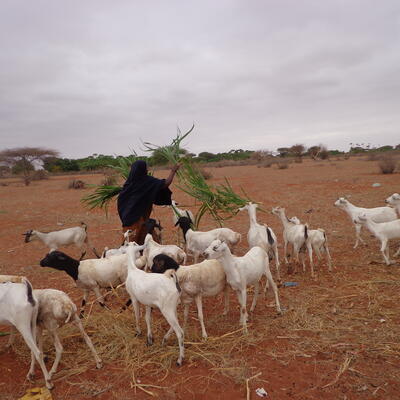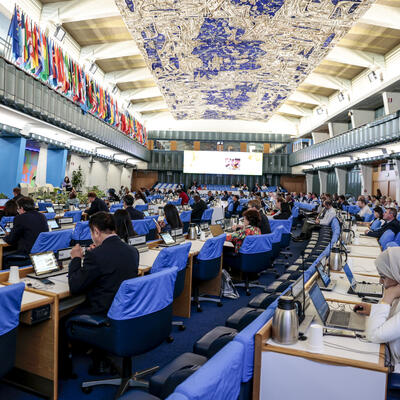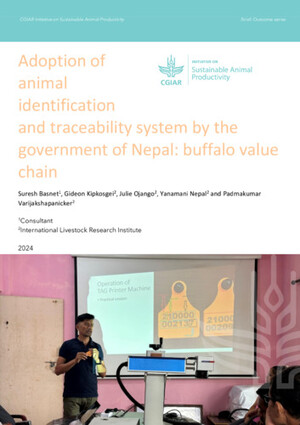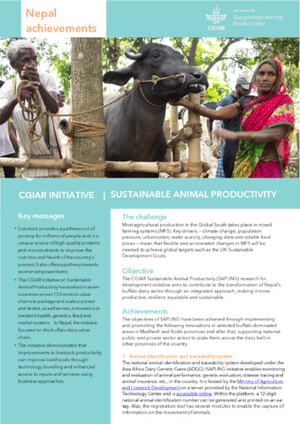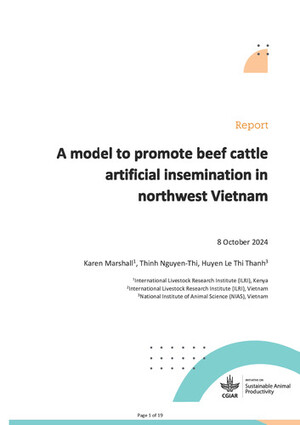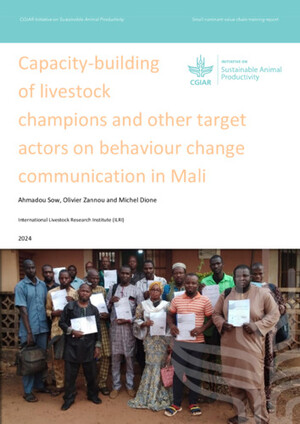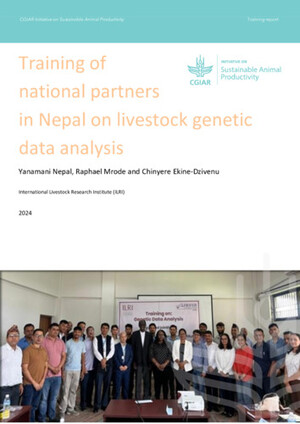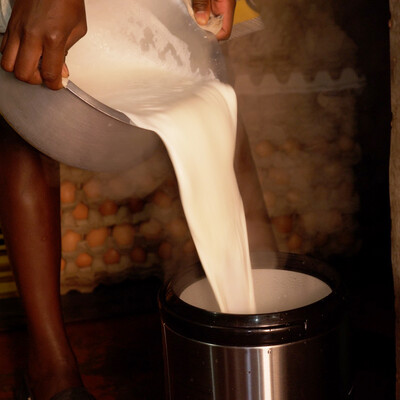
Business-to-business forums spur economic growth in northern Kenya
Part of the traders participating in the B2Bs trading at the Isiolo market (photo credit: Judy Kimani/ ILRI)
The International Livestock Research Institute (ILRI) has been partnering and collaborating with the United States Agency for International Development (USAID) East Africa Trade and Investment Hub (EATIH) under the Partnership for Resilience and Economic Growth (PREG) to hold livestock trade facilitation (business-to-business) forums in five Kenyan counties. This initiative has been implemented in Nairobi, Marsabit, Wajir and Isiolo counties to promote more efficient trade between livestock buyers, sellers and producers. Two additional facilitation forums will be held in the upcoming weeks (the next one in Garissa County on 29 November 2018).
Given that the livestock-meat value chain has potential to combat poverty and hunger in Kenya, particularly in dry land areas, the initiative provides a one-stop platform for stakeholders to tap directly into the large economic opportunities in these value chains. Significant benefits have been recorded by participants in the business-to-business forums which are now fondly referred to as B2Bs. Participants, who were strategically selected from local (Kenya) and international trade regions of Somalia and Ethiopia, have benefited through networking and market information sharing.
‘This forum has really opened our eyes to a whole new way of life. Previously, we as pastoralists, kept livestock only as a source of wealth and when drought hit again and again, we were left poor and discouraged to do the same thing over and over. But now, even our youth are encouraged to-keep livestock because we now view it as a source of income’ says an elated Zeinab Roba, one of the selected women from Isiolo livestock producers.
Northern Kenya has a competitive advantage in extensive livestock production due to the vastness of land which supports production of diverse livestock species hence the value chain actors have variety to choose from. Quality of the animals on sale is, however, a key factor in determining the price an animal can attract.
‘I am delighted to share market information with fellow traders. Most importantly I advise that we need to look after our cattle well and primarily ensure we feed them with salt minerals because it improves the quality of meat’ Charles Mwangi, a butcher from Nanyuki says.
The B2B forums have become the place to be for livestock keepers and meat traders, given the influence they have had within a short period of time,and word is spreading. At the onset, the forums intended to enhance market access for livestock/red meat for pastoralists’ producers in the arid and semi-arid lands (ASALS) in northern Kenya and widen their networks.
So far, support has been provided for exploitation of niche markets for live animals, livestock products and meat; facilitation to identify new market options in terms of specialization and diversification in addition to introduction to prospects for trading in livestock products and by-products.
‘Before I was introduced to this forum, I used to sell around 50 cows only, but now I sell up to 100 cows in a week. Am grateful for the opportunity to meet other traders. My income has gone up. I can now make ends meet, my children are all in school and I have constructed a good house,’ says Zeinab Abrahman a trader from Isiolo.
Access to financial support has often been cited as a major challenge but to enable the value chain actors to overcome this hurdle, they have been introduced to financial institutions that offer the desired support services.
Nelly Njiru, a researcher at ILRI notes the B2Bs partners’ pride in establishing market linkages given that previously, most producers complaints regarded lack of market access. Increasing resilience of vulnerable pastoralist communities living in the ASAL regions through livestock trade has been a core theme of the PREG initiative. Economic activities build on the strengths and priorities of pastoralists and this has allowed for a remarkable upsurge in survival abilities.
Wanjeri Mbugua a value chain development specialist at EATIH notes that the forums, which also provide opportunity for participants to sign live sale agreements, have shown a high potential for increasing trade in future. She says that the B2B forum has potential to reach out to stakeholders from other Kenyan regions and neighbouring countries.
To further enhance an enabling business environment among pastoralists, favourable policies should been acted and actualized. The forum incorporates policymakers with a bid to sensitize locals on existing policies that can be exploited besides offering an opportunity to share evidence-based ideas for informed decision-making. This also offers an opportunity for policymakers to understand the needs of their constituents.
Nadhem Mtimet, a senior scientist at ILRI says that the initiative is sustainable because it works with county governments, the Kenya Livestock Marketing Council and local livestock value chain actors who have contributed to the successes achieved so far and can lead it into the future. He adds that the B2B participants have since July 2018 committed to trade in total, 13,142 heads of sheep, goats and cattle worth about of USD 2.08 million, but a follow up on how much has been realized is yet to be undertaken.
Going forward, the initiative will produce guidebooks and policy briefs for use by actors in the livestock-meat value chain.
Read more about the B2Bs as documented by EATIH’s communications officer Inger Brenda here …






